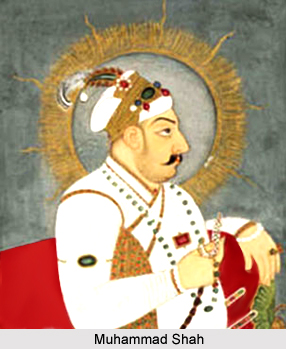 The Mughal Dynasty attained an important position for the growth and development of Unani medicine. Renowned and distinguished physicians were bestowed with prominent positions in the royal courts. The noteworthy physicians intensely contributed towards the development of medicine. Several hospitals, clinics and dispensaries were established throughout the country during the Mughal period. During the reign of Muhammad Shah, a large new hospital was constructed in Delhi, under the directorship of Hakim Qawam-ul-Din. The emperor patronised the Unani physicians whose versatility, expertise and vast knowledge highly augmented the growth and development of Unani medicine. The renowned physicians have been mentioned below:
The Mughal Dynasty attained an important position for the growth and development of Unani medicine. Renowned and distinguished physicians were bestowed with prominent positions in the royal courts. The noteworthy physicians intensely contributed towards the development of medicine. Several hospitals, clinics and dispensaries were established throughout the country during the Mughal period. During the reign of Muhammad Shah, a large new hospital was constructed in Delhi, under the directorship of Hakim Qawam-ul-Din. The emperor patronised the Unani physicians whose versatility, expertise and vast knowledge highly augmented the growth and development of Unani medicine. The renowned physicians have been mentioned below:
Mirza Muhammad Hashim Alavi Khan
Mirza Muhammad Hashim Alavi Khan was one of the notable physicians in the royal court of Muhammad Shah. Some of the books authored by him are: (i) Kitab-ul Nabat, (ii) Fami-ul-Fawami, (iii) Khulasat-ul-Tqjarib, (IV) Matab Alavi Khan, (v) Tuhfa-e-Muhammad Shahi, (ui) Ahwal-e-Aza-ul-Nafs, and (vii) Khulasa-e-Qawanin-e-Ilaj. His Fami-ul-Fawami is a masterpiece that encompasses all the branches of contemporary medicine. The huge work however, could not be finished during his lifetime. It was thus, later completed by Muhammad Hussain Khan, one of his descendants.
Hakim Muhammad Sharif Khan
Hakim Muhammad Sharif Khan was one of the distinguished physicians in the court of Muhammad Shah. When Shah Alam II (1759-1806) ascended the throne of Delhi he gained a high position of authority in the Tibbi circles. He was the veteran founder of the Sharifi family. His medical expertise, profound knowledge and skill and clinical sagacity helped in promoting Unani Medicine in India.
He learnt medicine under the guidance and supervision of Hakim Abid Sarhandi, Hakim Achhe Sahib and his father Hakim Akmal Khan. The later is known to have written a commentary on Samarqandi`s Asbab-o-Alamat. The emperor granted him a jagir and conferred upon him the title of Ashraf-ul-Hukama. He has authored the following medical books: (i) Raj ul-Amraz, (ii) Talif-e-Sharifi, (iii) Ujala-e-Nafia, (iv) Hashia-e-Najisi, (u) Tuhfa-e-Alamshahi, and (vi) Shareh Hummiyat-e-Qanun. The last book is a commentary on the chapter `Fevers` in al-Qanun of Ibn Sina.
Hakim Shifai Khan Arshad
Hakim Shifai Khan Arshad, a prominent physician of Oudh came to India during the reign of Muhammad Shah. He was a contemporary of Sharif Khan. He is said to have authored a medical text titled Shifa-ul-Famil. His famous prescription Khamira-i-Abresham is regarded as the greatest contribution to the Unani-Tibb medicine. It has used in several cases for the treatment of heart diseases. It has been shown that this Khamird acts as a tonic on the heart muscle. It helps in restoring and controlling restores the cardiac function by regulating the heart beats. It has also been found useful in arterial diseases.
During the period of Asaf Jahi in Deccan there were many distinguished physicians like Hakim Abd-ul-Husain Khan, Hakim Muhammad Amin-ul-Din Isphahani and others. They worked selflessly to raise the standard of the Unani Medicine in India.




















